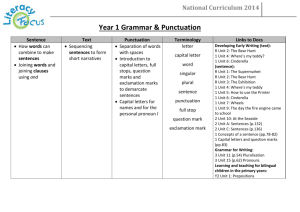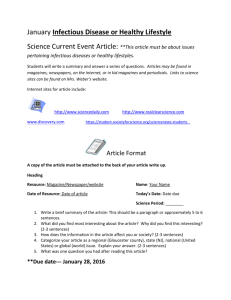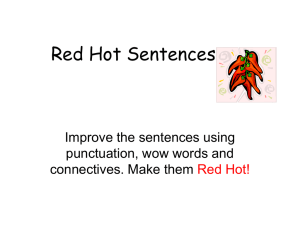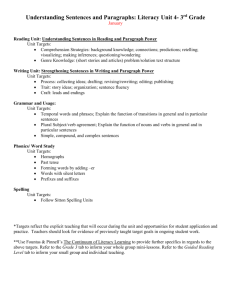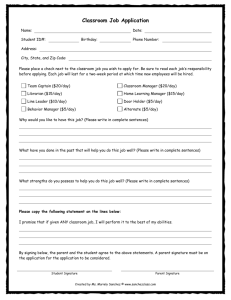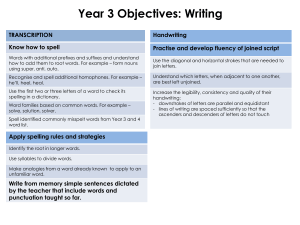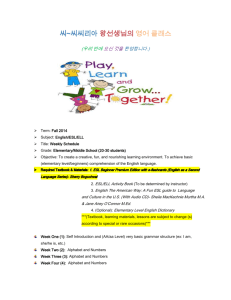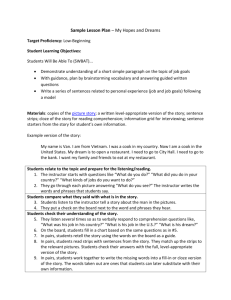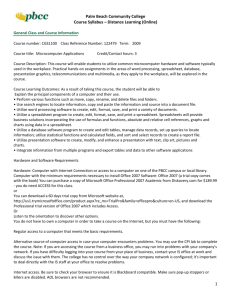Course Syllabus Course Title: Successful Communications for the
advertisement
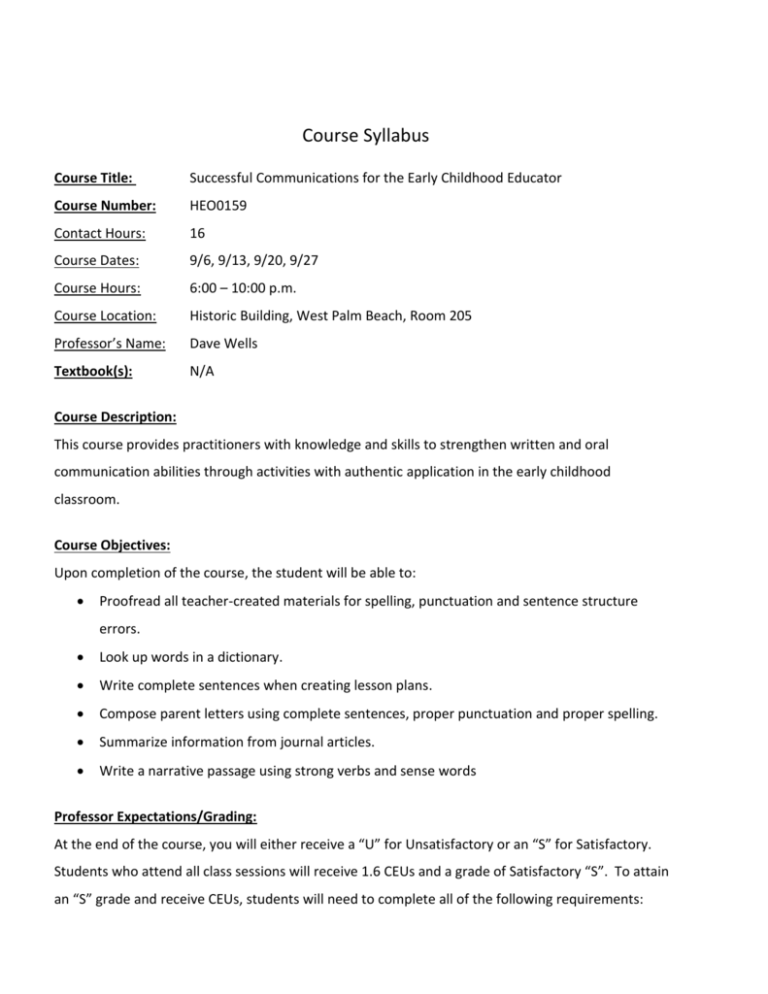
Course Syllabus Course Title: Successful Communications for the Early Childhood Educator Course Number: HEO0159 Contact Hours: 16 Course Dates: 9/6, 9/13, 9/20, 9/27 Course Hours: 6:00 – 10:00 p.m. Course Location: Historic Building, West Palm Beach, Room 205 Professor’s Name: Dave Wells Textbook(s): N/A Course Description: This course provides practitioners with knowledge and skills to strengthen written and oral communication abilities through activities with authentic application in the early childhood classroom. Course Objectives: Upon completion of the course, the student will be able to: Proofread all teacher-created materials for spelling, punctuation and sentence structure errors. Look up words in a dictionary. Write complete sentences when creating lesson plans. Compose parent letters using complete sentences, proper punctuation and proper spelling. Summarize information from journal articles. Write a narrative passage using strong verbs and sense words Professor Expectations/Grading: At the end of the course, you will either receive a “U” for Unsatisfactory or an “S” for Satisfactory. Students who attend all class sessions will receive 1.6 CEUs and a grade of Satisfactory “S”. To attain an “S” grade and receive CEUs, students will need to complete all of the following requirements: 2 1. Class Participation: You must actively contribute to large class discussions (both in the face to face portion and online portion of the course) and small group activities. If you are not comfortable speaking in front of large groups, you can demonstrate your contribution by refraining from side bar conversations, taking notes, and/or actively listening to other students and the instructor during large group discussions. In small group activities, students must participate by contributing ideas, suggestions, and answers for the group to present. 2. Implementation Plans: You must fully complete all IPs. Full completion means submitting your IP with answers for each question posed and writing in complete sentences. If a question is left blank, the instructor may ask you to resubmit your IP with the outstanding question answered. Any IP that is partially completed will be considered incomplete. All IPs must be submitted on the date due. If a student does not attend class, their IP must be submitted no later than the following class session. 3. Attendance: Attendance is required. Students must attend all class sessions. Students are allowed only one class session absence and it must be due to a documented emergency (car accident, serious illness/hospitalization, or death in family, etc.). Students with an excused absence will be given a make-up assignment related to the material covered in the missed class, which must be completed and turned in by the next class session. Students must contact the instructor by phone or email no later than one day after class to inform him that they have an excused absence and to request their make-up assignment. Students must also arrive on time. One late arrival or early departure of 15 minutes or less is permitted; additional late arrivals or early departures will be considered an absence. 4. Course Evaluations: In order to receive an “S” grade in this course, you will need to submit a completed Pre-Post Survey and the Corporate and Continuing Education (CCE) Workshop Evaluation at the end of course. Your feedback and comments are vital to the ensuring that we improve the course and ensure quality learning. Student Code of Conduct: PBCC has a Student Code of Conduct that is outlined in the student handbook. The classroom should be a learning-centered environment unhindered by disruptive behavior. Faculty has the authority to manage their classrooms to ensure that an environment conducive to learning is present, per Florida Statue 69-279 and PBCC Board Rule 6hX-18.35. Each person is to attend the seminar to learn the competencies offered and 3 apply these competencies to their workplace. If a student or students hinder the ability of others to learn, they will be asked to leave the classroom. Course Outline: I. “Creating your classroom communications” a. Writing labels/ dictionary & thesaurus use b. Creating signs and posters II. “Creating parent communications” a. Creating newsletter items b. Writing notes home to parents III. “Creating lesson plans” a. Writing lesson plan items in complete sentences. b. Writing objectives and outcomes in complete sentences. IV. Writing for personal and professional development a. Note taking for success in trainings b. Summarizing Early Childhood Education articles c. Writing narrative reflections on professional growth Materials and Special Equipment Required by Students: None Assessment Methods: Classroom implementation plan Students with Disabilities: Students with disabilities are advised, in compliance with federal and state laws, that accommodations and services are available through the office of Disability Support Services (DSS). It is the student’s responsibility to contact Disabled Student Services Advisors at this location and to submit appropriate documentation prior to receiving services.



